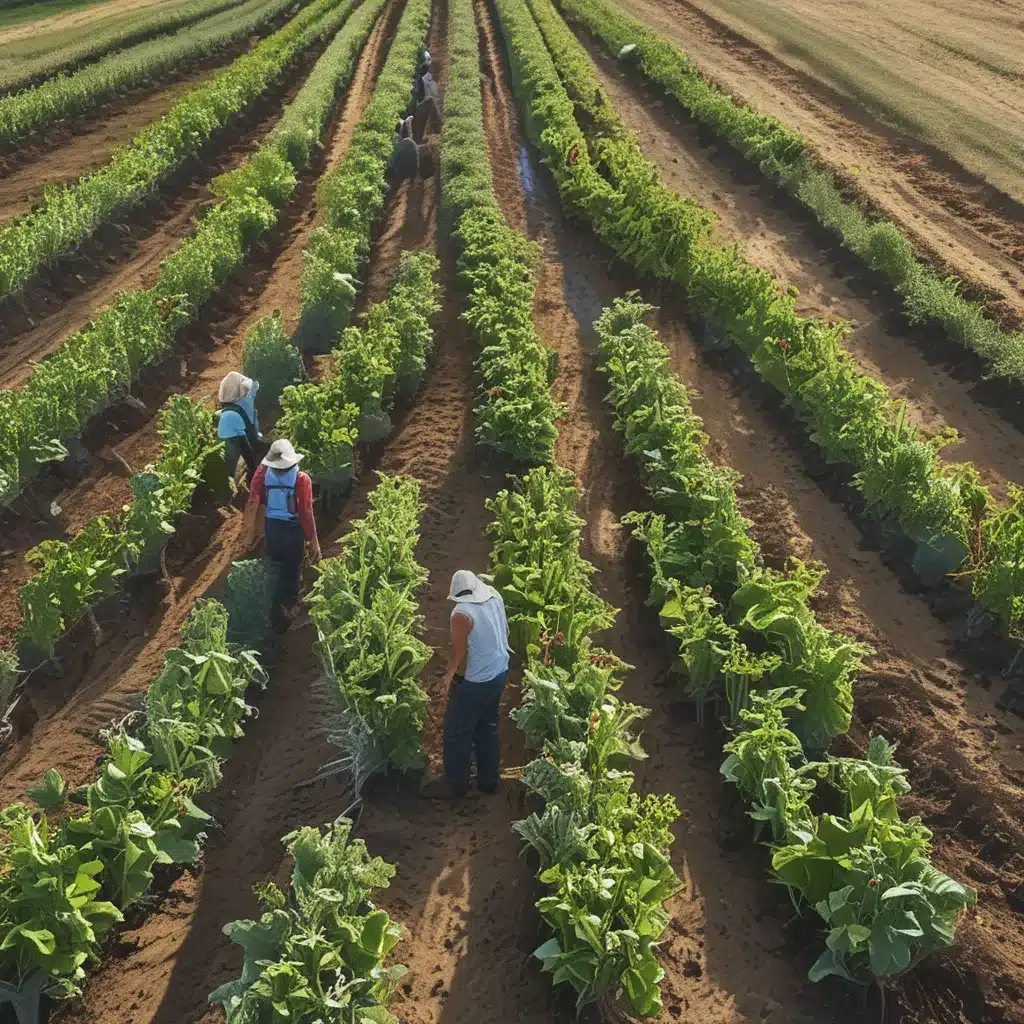
Unpredictable Times, Unwavering Resilience
As a beginning farmer at Thornnapple CSA, I’ve had a front-row seat to the ever-evolving dance between organic farming and a shifting climate. Each season brings a new set of challenges – from torrential downpours to scorching droughts, relentless pests to mysterious diseases. It’s enough to make even the most seasoned grower throw in the trowel. But as I’ve learned, it’s in these uncertain times that we must dig deep, embrace the unexpected, and cultivate the resilience needed to not just survive, but thrive.
Observing and Adapting
When I first started out, I’ll admit, the constant barrage of climate-related curveballs had me reeling. One particularly vivid memory is standing in a flooded field, staring helplessly as our carefully tended crops succumbed to waterlogged soil and nutrient leaching. It was heartbreaking to witness the hours of backbreaking work and meticulous planning unravel before my eyes.
But as the saying goes, “with great adversity comes great opportunity.” I soon learned that the key to navigating these turbulent times lies in careful observation and constant adaptation. Each season, I meticulously document the weather patterns, soil conditions, and the ebb and flow of pests and diseases on our farm. This data not only helps me make more informed decisions, but also allows me to spot emerging trends and adjust our organic practices accordingly.
Diversifying for Resilience
One such adaptation has been a shift towards greater diversification, both in the crops we grow and the income streams we cultivate. Rather than relying on a handful of finicky cash crops, we’ve expanded our repertoire to include a wider variety of hardy, climate-resistant vegetables, fruits, and herbs. This not only helps us spread the risk, but also provides our community with a more diverse and nutritious bounty.
In addition, we’ve been exploring alternative revenue sources to supplement our CSA subscriptions. From value-added products like jams and salsas to on-farm experiences like farm tours and U-pick events, we’re constantly seeking out new ways to diversify our income and build financial resilience.
Regenerative Practices in Action
At the heart of our approach, though, is a deep commitment to regenerative organic farming. By focusing on soil health, biodiversity, and closed-loop systems, we’ve been able to create a more resilient agro-ecosystem that can better withstand the shocks of a changing climate.
One of our most successful regenerative practices has been the implementation of cover cropping. By strategically planting a diverse array of cover crops, we’ve not only improved soil fertility and moisture retention, but also created a natural barrier against erosion and weed invasion. Additionally, the root systems of these cover crops help to aerate the soil and improve water infiltration, making our fields better equipped to handle heavy downpours.
Embracing the Unexpected
Of course, no amount of planning can fully prepare us for the curveballs that Mother Nature has in store. That’s why a crucial part of our approach is learning to embrace the unexpected and maintain a positive, adaptable mindset.
When a late-spring frost wiped out a significant portion of our early-season crops, it would have been easy to succumb to despair. Instead, we rallied as a community, got creative, and found alternative ways to fill our CSA boxes. We started sourcing from neighboring organic farms, expanded our greenhouse production, and even began foraging for wild edibles to supplement our offerings.
Building Community Resilience
Ultimately, our ability to adapt and thrive in the face of climate change is not just about individual farm resilience, but about the collective resilience of our entire food system. That’s why we’re committed to sharing our learnings and collaborating with other organic growers in our region.
Through initiatives like farm tours, educational workshops, and peer-to-peer support groups, we’re building a network of like-minded farmers who can learn from each other’s successes and failures. By pooling our knowledge and resources, we can develop innovative solutions to the challenges we face and create a more sustainable, climate-resilient local food system.
The Path Forward
As I look to the future, I can’t help but feel a sense of both trepidation and excitement. The road ahead may be paved with uncertainty, but I’m confident that by embracing the unexpected, leveraging regenerative organic practices, and fostering a strong community of support, we can not only survive, but thrive in the face of a changing climate.
At Thornnapple CSA, we’re committed to being at the forefront of this journey, leading by example and inspiring others to join us in cultivating a more resilient, sustainable, and delicious food future. After all, as the saying goes, “the only constant is change” – and that’s a challenge we’re more than ready to embrace.



